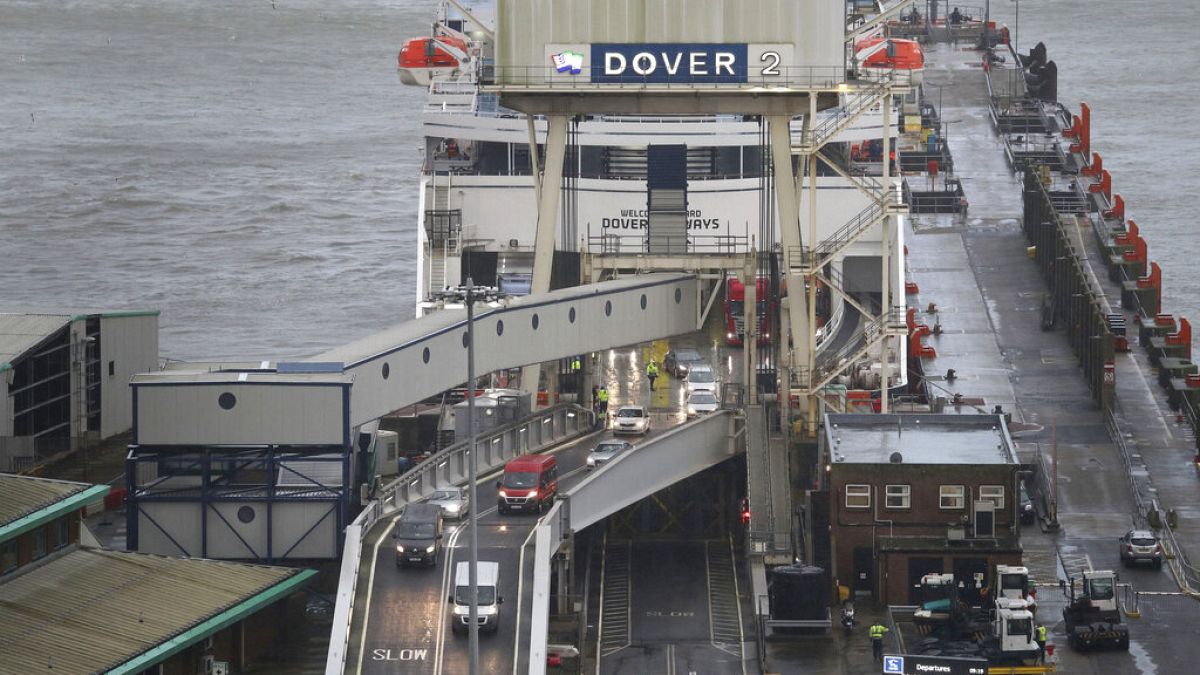The UK government is preparing for possible chaos when the EU’s new Entry/Exit system (EES) launches later this year.
The incoming EU border scheme, set to be in place from 6 October, is expected to cause delays at the Port of Dover, south east England.
Guy Opperman, a minister in the UK’s transport department, has now explained the scheme will have a “six-month soft launch” to make the process more simple.
Speaking at the House of Commons’ European Scrutiny Committee, Opperman said the plan will enable a “greater freedom of passage of vehicles” if queues build due to the EES.
The scheme will see travellers from non-EU countries like the UK having their fingerprints scanned when entering the bloc, as well as a photograph of them being registered on a database the first time they enter a member state.
Read Euronews Travel's full guide to the EU Entry/Exit system (EES).
Government agencies and representatives for the tourism industry have said that the EES will likely cause long queues for ferry traffic sailing from Dover to Calais.
The Port of Dover is fairly unique in its approach to EES, as French border checks are carried out on UK soil, before people embark on cross-Channel journeys.
“We certainly have a six-month period where the implementation of this is effectively by way of a soft launch,” Opperman said.
“If one got to a situation where there were a certain amount of queues or delays, then the provisions of the precautionary flexibility measures allow for much greater freedom of passage of vehicles, coaches, HGVs and cars,” he added, “That takes care of so much of the queuing, so many of the complications.”
There have been rumours that an EES app to help travellers speed up the process won’t be ready in time for the October launch.
Home Office minister Tom Pursglove seemingly confirmed this, telling the committee that the Government does not believe the EU will have completed the development of the app before the scheme is launched.
“It is an area that we are consistently raising both at official level and ministerial level as something that we feel very strongly ought to be put in place at the first possible juncture,” he explained.
“There are huge advantages around trying to be able to do as much of this processing upstream as possible. My understanding is that there is a recognition on the EU side and on the individual member state side that this is something that will really help to mitigate some of these challenges,” Pursglove added, “and again, there is a determination to try and deliver that app-based solution as quickly as possible.”


